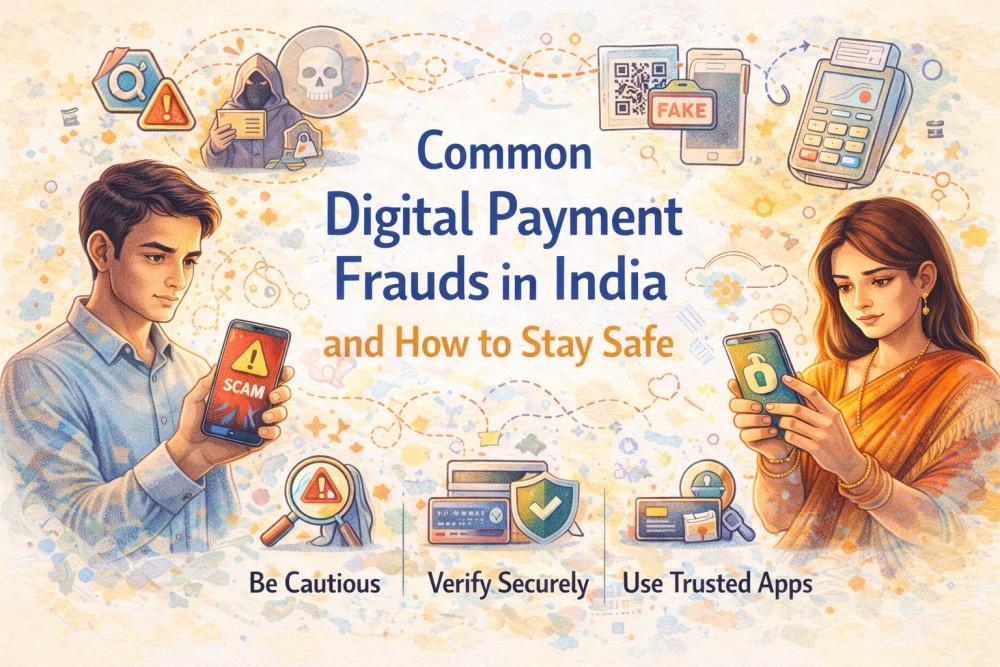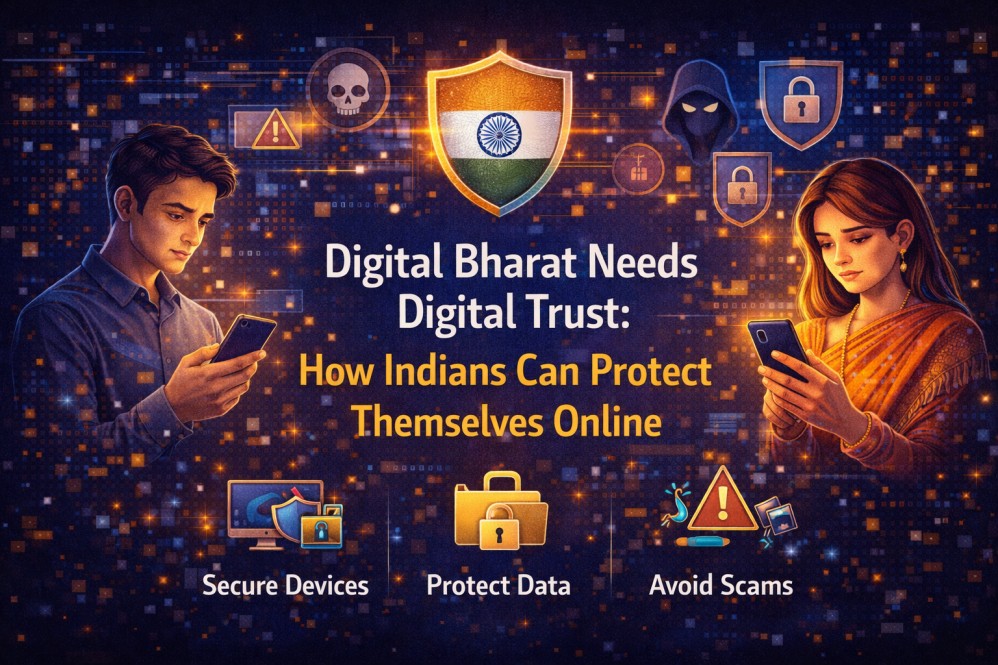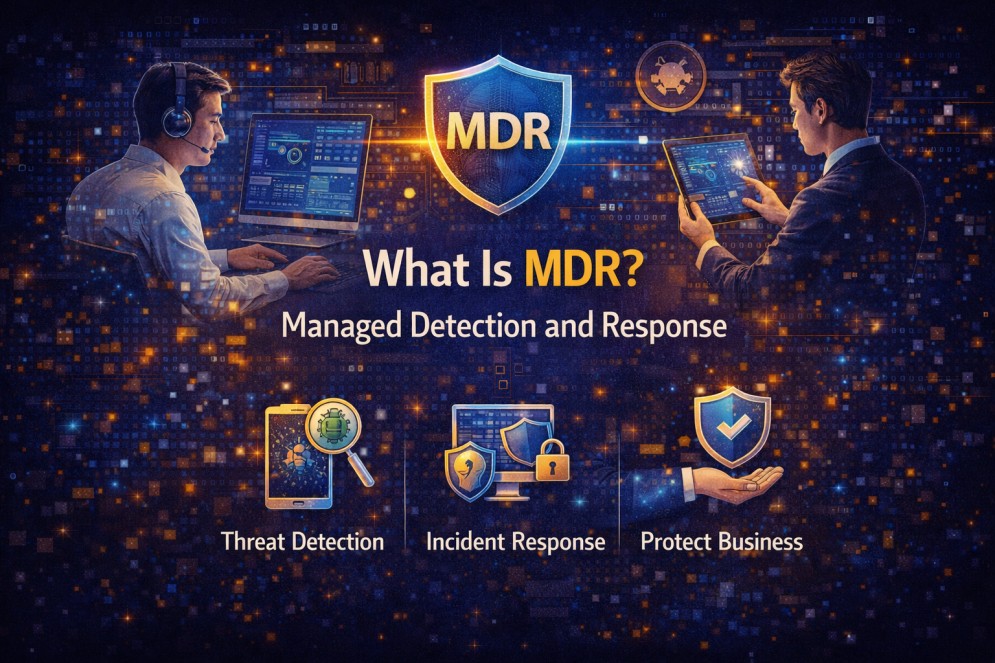
Apr

The Importance of Regular Software Updates in Cybersecurity
-
Quick Heal / 10 months
- April 29, 2025
- 0
Cyber threats are constantly evolving, and one of the most effective ways to protect your digital life is also one of the simplest: keeping your software up to date. Regular software updates are essential for maintaining strong cybersecurity, yet many individuals and organizations neglect this critical practice. From fixing vulnerabilities to adding new security features, software updates play a vital role in safeguarding your devices and data.
As cybersecurity experts emphasize, making software updates a priority is key to staying one step ahead of cyber criminals. In this blog, we will explore why regular software updates are so important and how you can effectively manage them to keep your systems secure.
What Are Software Updates?
Software updates, also known as patches or upgrades, are modifications to existing software programs. These updates come in various forms, each serving a specific purpose:
- Security patches: These updates address newly discovered vulnerabilities or flaws in the software that could be exploited by hackers. By fixing these weaknesses, security patches help prevent cyberattacks.
- Feature updates: These add new functionality, improve performance, or enhance the user experience. While not always security-focused, feature updates often include security improvements as well.
- Bug fixes: These updates resolve issues or errors in the software that may cause instability, crashes, or unexpected behavior. By fixing these bugs, updates help ensure the software runs smoothly and reliably.
Regular software updates are crucial because they ensure your software has the latest security measures, features, and stability improvements. Without these updates, your software becomes increasingly vulnerable over time.
How Software Updates Protect Against Cyber Threats
One of the primary reasons to prioritize software updates is their role in defending against the ever-evolving landscape of cyber threats. Here’s how updates help keep you safe:
- Closing security holes: As researchers and hackers discover vulnerabilities in software, developers work to create patches that fix these weaknesses. Regular software updates ensure these patches are applied promptly, closing the window of opportunity for attackers to exploit known vulnerabilities.
- Preventing malware infections: Cybercriminals often leverage software flaws to spread malware such as viruses, spyware, and ransomware. By updating antivirus software regularly, you ensure your system has the latest malware definitions and detection capabilities to identify and block these threats.
- Protecting sensitive data: Regular software updates help prevent unauthorized access to your personal information, financial details, and confidential files. Updated software is more resilient against tactics like SQL injection or cross-site scripting that hackers use to steal data.
Real-world examples highlight the importance of timely updates. The infamous WannaCry ransomware attack in 2017, which affected over 200,000 computers across 150 countries, exploited a vulnerability in outdated Windows systems. Microsoft had released a patch for this flaw months earlier, but many users hadn’t applied the update, leaving them exposed.
Risks of Ignoring Software Updates
Neglecting software updates can have serious consequences for your cybersecurity. When you fail to update antivirus software regularly or ignore other critical patches, you expose yourself to a range of risks:
- Increased vulnerability to cyberattacks: Outdated software with known vulnerabilities is a prime target for hackers. They actively seek out unpatched systems to infiltrate.
- Malware infections: Without the latest security measures, your device becomes more susceptible to viruses, ransomware, and other malicious software.
- Data breaches: Cybercriminals can exploit software flaws to gain unauthorized access to sensitive information, leading to identity theft or financial fraud.
- Compliance issues: In regulated industries like healthcare or finance, failing to update software regularly can violate security standards and result in penalties.
The longer you delay software updates, the greater these risks become. Hackers are constantly scanning for vulnerable systems, and outdated software is an open invitation for them to attack.
Best Practices for Managing Software Updates
To effectively leverage software updates for stronger cybersecurity, follow these best practices:
- Enable automatic updates: Whenever possible, configure your operating system and key applications to install updates automatically. This ensures that critical patches are applied promptly.
- Schedule regular checks: For software that doesn’t offer automatic updates, set reminders to manually check for and install available updates at least once a month.
- Update all your devices: Don’t forget to update antivirus software regularly on all your devices, including smartphones, tablets, and IoT gadgets. Cybersecurity is only as strong as your weakest link.
- Retire unsupported software: If a software program is no longer receiving security updates from the vendor, it’s time to replace it with a supported alternative. Continuing to use outdated, unsupported software puts your system at risk.
- Educate your team: In business settings, ensure your employees understand the importance of software updates and their role in maintaining cybersecurity. Provide training on how to manage updates effectively.
Tools like Quick Heal Total Security can help automate and streamline the process of updating software regularly. With features like patch management and centralized device control, comprehensive security solutions make it easier to keep all your systems up to date and secure.
Stay Safe and Updated with Quick Heal
In the battle against cyber threats, regular software updates are one of your most powerful weapons. By diligently updating antivirus software regularly and applying patches for your operating system and other programs, you significantly reduce your risk of falling victim to cyberattacks. Neglecting updates is like leaving your door unlocked in a high-crime neighborhood – it’s an open invitation for trouble.
Make software updates a top priority in your cybersecurity strategy. With a proactive approach to updates, especially when using robust security solutions like Quick Heal Total Security you’ll be well-equipped to combat cyber threats and keep your valuable data safe.
Check Out Our Full Antivirus Range






